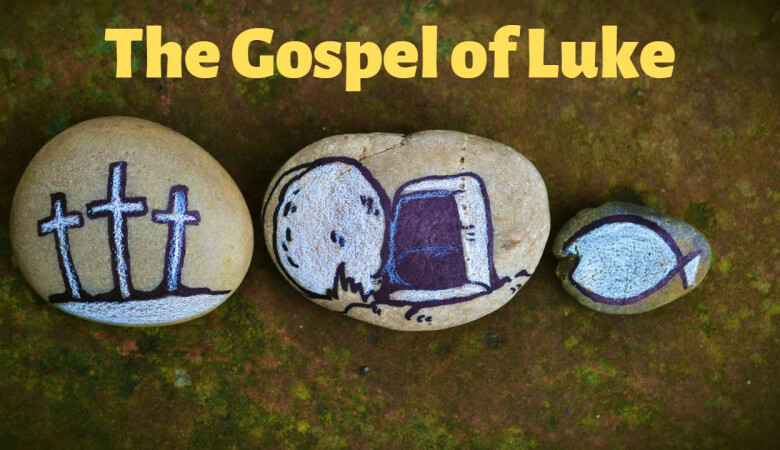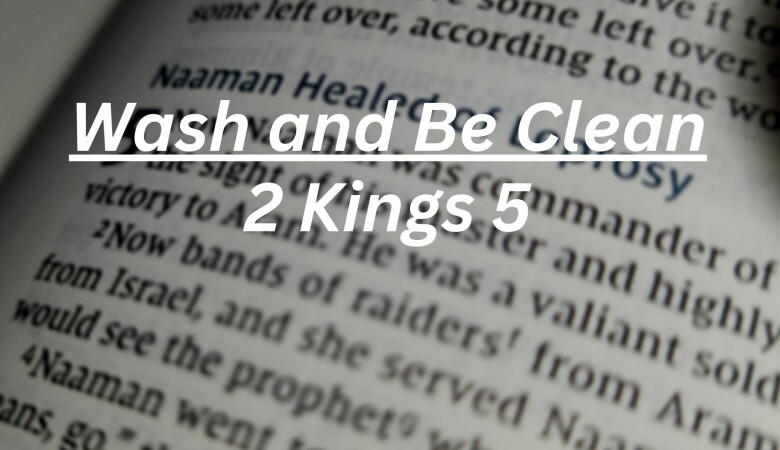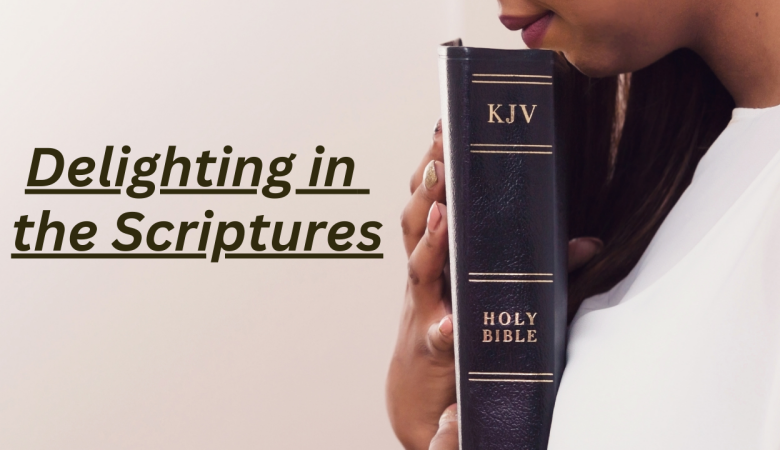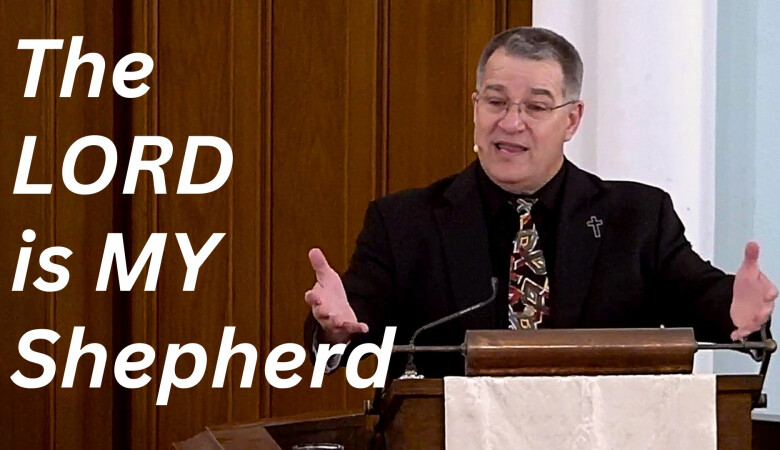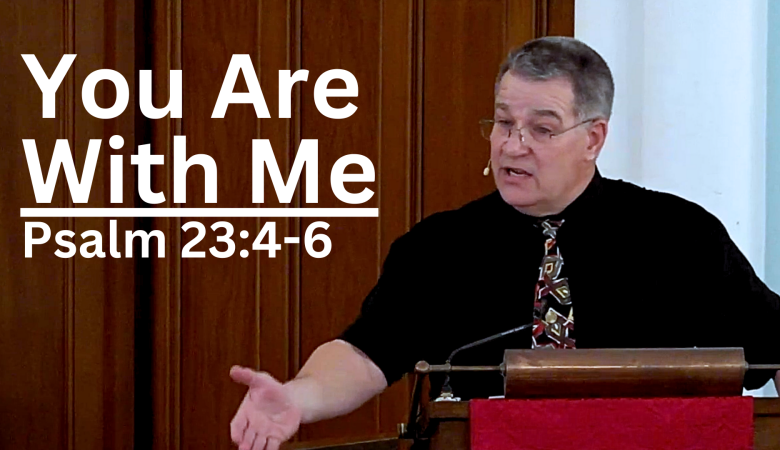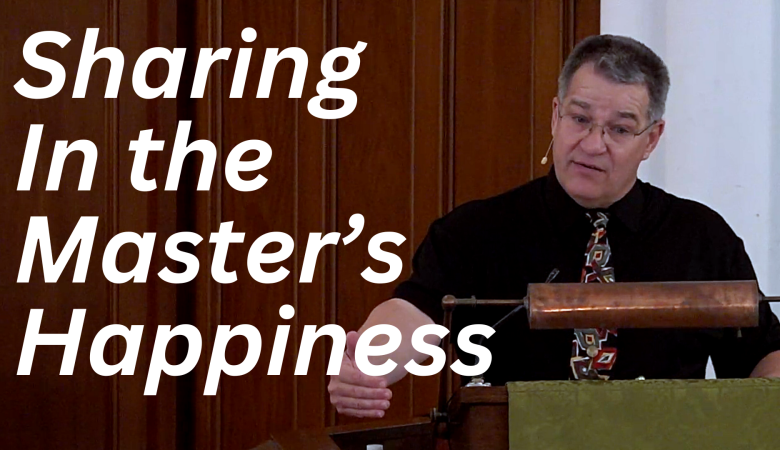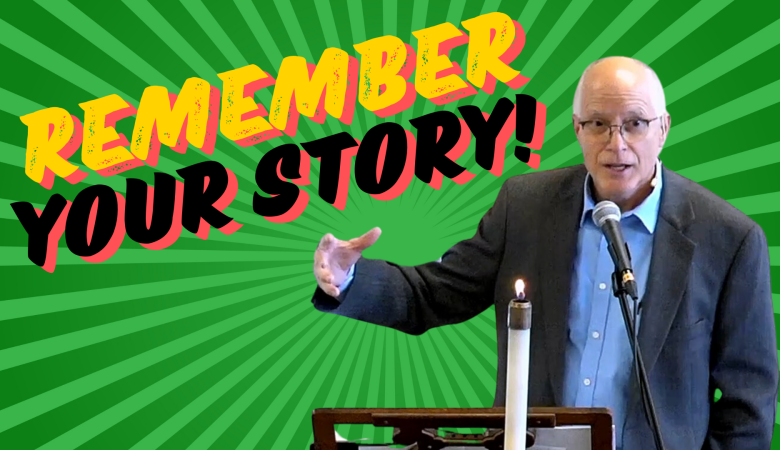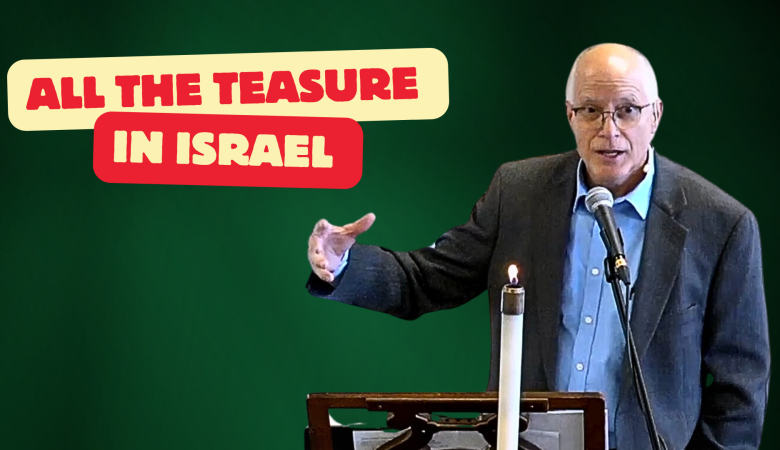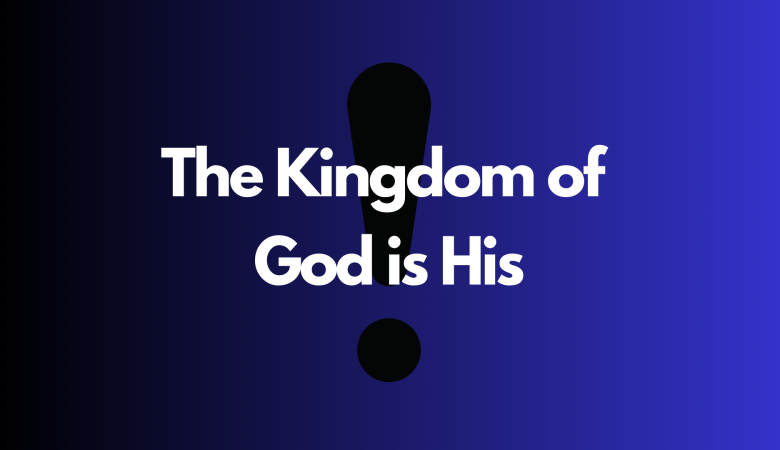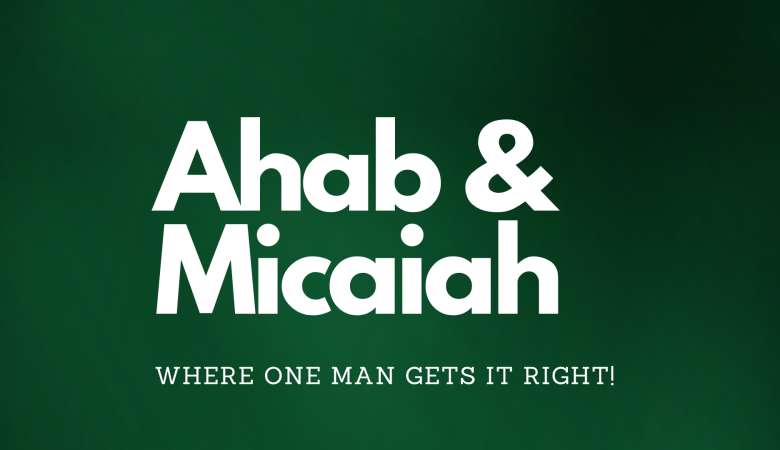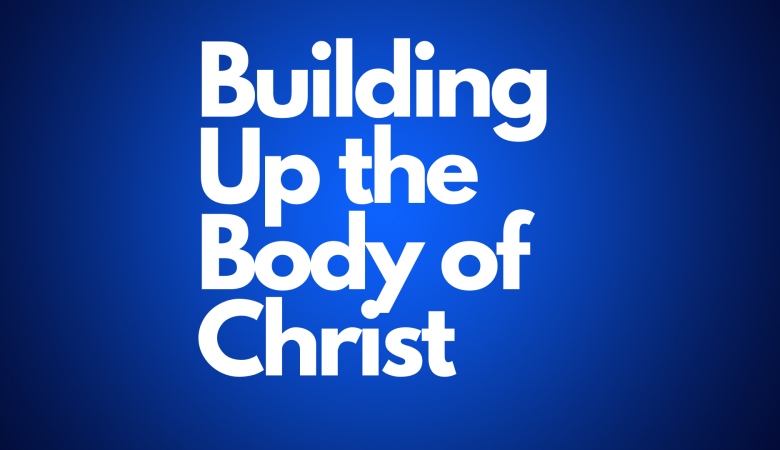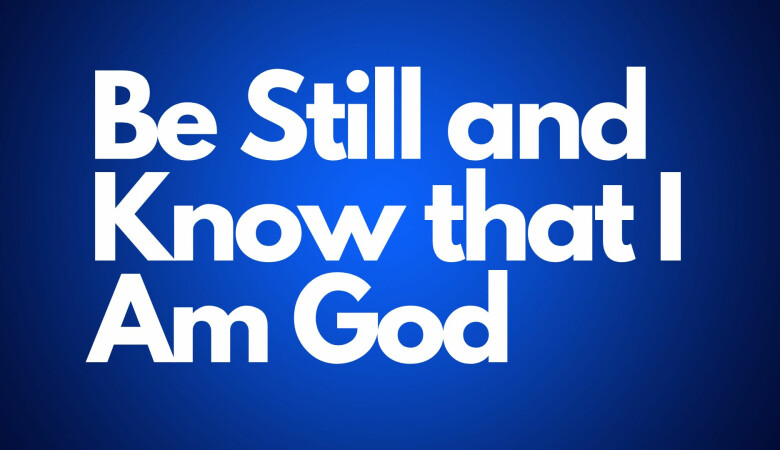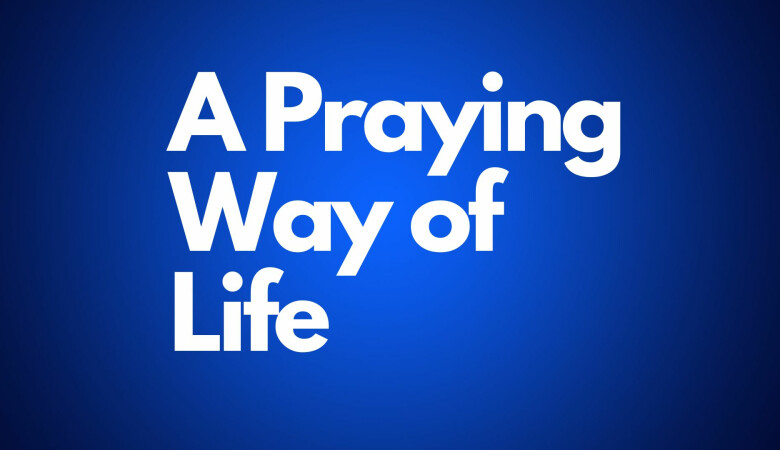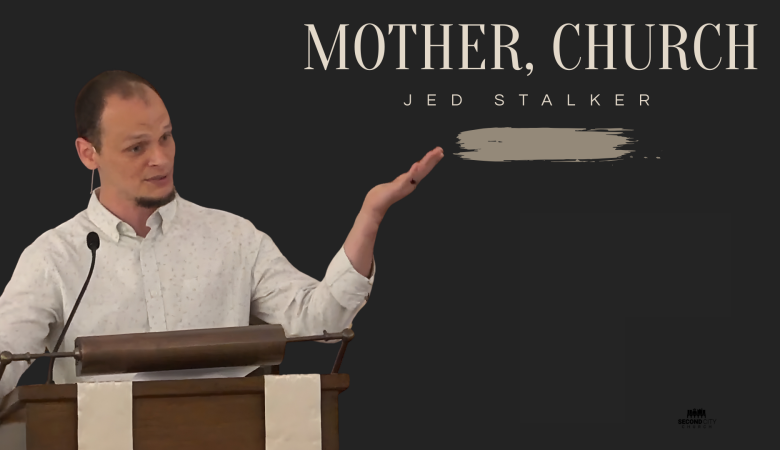Series: Guest Preachers
The Blessing of God
June 02, 2024 | Andy Phillips
Passage: Numbers 6:24-27
ALL SERMONS IN SERIES
Summary
The Blessing of God | Numbers 6:24-27
The Aaronic Benediction so familiar to many of us, is far more than a prayer to close a worship service. It’s a declaration and promise of blessing from God. A promise that we are kept, shown grace and God’s presence is with us. This promise and declaration is that much more sure in Christ. Our challenge is to realize this as we process life.
Transcript
24 “‘“The Lord bless you
and keep you;
25 the Lord make his face shine on you
and be gracious to you;
26 the Lord turn his face toward you
and give you peace.”’
27 “So they will put my name on the Israelites,
and I will bless them.”
Numbers 27:24-27
24 “‘“The Lord bless you
and keep you;
25 the Lord make his face shine on you
and be gracious to you;
26 the Lord turn his face toward you
and give you peace.”’
27 “So they will put my name on the Israelites,
and I will bless them.”
Numbers 27:24-27
The passage we're going to look at today is, the numbers passage that was read. You've heard it, numerous times, I think I've said it the close of services, probably quite literally hundreds of times. In my years in ministry, almost every week we use that benediction. Ah, it's, common. It's a frequently used benediction. And both, jewish, worship and the christian tradition, it's been called the oldest documented prayer. In fact, the earliest known fragments of any biblical text, predating even the dead Sea scrolls by, some 400 years, has this text on it. So it's pretty significant. And, um, so, you know, I had somebody ask me, why in the world are you preaching on that? And, um, in part it's for that reason, so I say it a lot. Rebecca mentioned this morning we have a tradition here of sometimes holding out our hands to receive the benediction. And there's a lot to that which hopefully this will help unpack. But the other part of this text that I love is, frankly, I've struggled with prayer. Um, none of you probably ever do. but I struggle. I tend to struggle in one of two ways. Either my prayers look like a gimme list to God with not much to it, and then I struggle with how to pray. And particularly for, Linda and I have some, and I've mentioned this a lot, I'm sure, as, I've preached. But we have, two very close, family friends that have terminal diagnoses. And so how do you pray for somebody like that? Someone who has gilioblastoma and there's no cure. Um, his death is imminent. He's a young man, relatively young man. How do you pray? We're still to ask. We know somebody else who's struggling with a disease that I've mentioned her a number of times. she has a debilitating disease that's deteriorating her body. And how do you pray for or her will, God answer? He does sometimes. But in both of these cases, it doesn't look like he's going to answer in a way that they'll be healed. But what I found in this prayer is something which I can petition. And what's been remarkable as I've watched these families, is I've watched these two families go through this difficult time. It's as God has answered this prayer that they're finding what is promised in it. Peace. The Lord bless you and keep you. The Lord make his face shine upon you and be gracious to you. The Lord turn his face towards you and give you peace. I pray that frequently for these families. And it's significant for us because I think as you reflect on your life and the difficulties, there are no guarantees, there are no assurances that our, life is going to turn out exactly the way we want it to, with no heartache, with no difficulties. We all know that's not life. How do you pray? This passage is helpful. This is a benediction. So what is a benediction? What's it supposed to do? Um, what does it accomplish at the end of the service? For a lot of us, it signals finally it's done, we can get out of here and get on with our day. It has that sort of appeal in some respects. Some folks say, well, it's a prayer, and it is that. But it's also not that. It falls right after these nazirite vows, right before the instructions of setting up the temple. And it serves to show that God, intends, his permanent purpose is to bless his people, not merely those under the nazirite vows. And it's more than a prayer. It is a prayer, but it's more than that. The english word we use, benediction, points to that. Merriam Webster says, in benediction bene well as root, it's joined with another latin word, dicto, speaking. So the words meaning becomes something like well wishing. But it's more than that. It's more than well wishing as a blessing from God. It's a declaration. A declaration to realize. When you bless someone, you give something to, someone. And I often thank the many donors of the church, thank you for blessing us with your time, your talent, your service. It's a gift. So when we stand with our hands open like that, we're acknowledging that this is a declaration, a promise from God, that we are accepting as a blessing from God. It's a declaration, a promise to realize, not just a prayer. We hope he might answer. Mike Leek says, this. I think I have this, in the front of your bulletin. May the Lord bless you and so forth as a request, sure. But it's also a declaration for those who are in Christ. You are blessed. You will be kept. His face does shine upon you. So the benediction is more than just a well wish. It's grounded upon a sure and certain hope that we have in Christ the Old Testament saints look forward to. And it's a prayer, but it's a declaration of grace and peace conferred because of the finished work of Christ.
So that's what it is. But what does it do notice the language of, verse 24. This is how the instructions to Aaron's sons, the priests of Israel, this is how you are to bless the Israelites. That's verse 24. But what was the same verse 27. So they will put my name on the Israelites, and I will bless them. I, the Lord God, will bless them. It's Aaron and his sons and ministers of the gospel following suit, that are doing the blessing. But it is God who blesses, I think, the world of Peter, but he ain't got nothing to give me. It's God who is giving the blessing through him or through the minister of the gospel. And the beauty of verse 27 in the Hebrew I is emphatic. God's underscoring that it's I that will bless them. And then, as you remember the blessing, the Lord bless you and keep you. The Lord shine upon you and be gracious to you. The Lord turn his face towards you and give you peace. Grammatically, the Lord isn't needed in each one of those stanzas, but for emphasis, it's God himself, the Lord God Yahweh, who is doing for you. And not only doing, will do and has done for the community. But the other part that I love about this is this is certainly a community pronouncement. But the you and each one of those is singular. So it's not just you, general, all of us. It's you in particular. You in particular. God's name is being put on his community. A people called by his name. All that that represents is upon us and is promised, is, declared upon us, guaranteed that God will bless his people, which is to say that God will keep, God will be gracious, and God will give peace. A guarantee, a declaration made all that much more sure in Jesus Christ. You don't put your name on stuff that doesn't belong to you. Have you been to the library downstairs in Jess office? You've seen my name all over books. because those books were mine. And in the olden days, when you use books, for seminary and stuff, you wanted to put your name on them because you'd share with your buddy, your classmate. And often those books would disappear. But if your name is there and I put it right on the part, not inside covers, right there on the front. Because I want people to know those books are mine. So don't put it on your library shelf. I'll need it back. God puts his name on us. He claims us not just in community, but you. You, the guarantee, the promise of that benediction. And when that's made as a declaration each Sunday morning at the close of the service, that is reminding you, declaring to you, you are receiving the blessing of God. You're mine. You're all mine. And all that that means God has looked at you and said, mine. I was making this point in a sermon years ago when our kids were littler. And, they were old enough, probably in their teens, and they were sitting right there in terms of where my angle was. And so I was making this point, and I went through each one of them. I looked at each one and said, you are mine. I looked at Kelly and I looked at Laura. You are mine. Then I looked at the next one, and it wasn't mine. And I went, you. It was Kelly's friend. So I had to skip that one and look at Christine, say, you're mine. That one wasn't mine. She was in our congregation, a daughter of a good friend of ours, very special person, but not mine. God looks at you and says, you are mine. And the benediction is proclaiming that is proclaiming that God has claimed as his own mine. His name is upon us. It means we are kept. We are being kept, and we will be kept. It means we have been given grace. We are receiving grace, and we will be given grace. It means, you have been given peace. You have peace and will be given peace. That is what a benediction does.
Well, lets unpack each of these phrases, because there is a lot in there, and frankly, there's some stuff that's a bit troubling if you read it on the surface. And in some respects, well, um, really, in all respects, you can't really separate one from another. To be blessed is to be kept by God. But the idea of being kept by God, yikes. If we don't know he's for us, that might not be a good thing. But the grace of God proclaims that he's for us. And of course, the grace of God means that there's peace in the presence of God. Well, let's look at that word keeping. Keeping is at the heart of the blessing of God. yahweh, bless you and keep you. God's keeping you is the essence, I think, of what it means to be blessed by God. We are his. He has us, he is with us. And oftentimes that's looked at as simply God's promise to protect. Psalm 21, for instance, says, the Lord will keep you same word from all evil. Oh, yikes. What do you do with that? It was Job's struggle. Job was reading this and understanding that and struggled intensely. Where is the promise of God's keep? Why is God not for me? Why is God not responding? The beauty of looking at the scriptures through the lens of Jesus, we get to see how nuanced this is. We read Matthew ten, and in that context, there's a promise of God that we like to skip by. And it's the promise of persecution, the promise of tribulation, the promise of hardship, and the promise of that blessing comes to a point in verse 29 where Jesus says, are not two sparrows sold for a penny, and not one of them shall fall on the ground without your father? Some translations insert the word will that's not in the Greek. Without your father. Without your father. That's the point of romans eight, isn't it? Protect us from evil in keeping us in the midst of it. Who shall separate you from the love of Christ? Trouble, hardship, persecution, famine, nakedness. I am convinced that neither death nor life, neither angels nor demons, neither the present nor the future, nor any powers, neither height, depth, nor anything else in all creation will separate us from the love of Christ. God's, promise, his declaration to keep you the greatest comfort we have. And we sang about it. Jess apologized. She said, I've got a lot of scripture on the word because I switched the sermons I was preaching when I was preaching, and I noticed beautiful stanza in, um, the, um, hymn, the song we sang, um, thy word. When I feel afraid and I think I've lost my way still you're there right beside me God keeping us. God keeping us. Our only comfort in life and death. The Heidelberg catechism says that I'm not my own. I am bought. I belong body and soul and in life and in death. To my faithful savior, Jesus Christ. Commentator on psalm 27. We'll look at this again a little bit more later. God's beautiful presence comforts the abandoned, vindicates the falsely accused, makes the brave cowardly. In fact, waiting on the realization of God's presence is always the formula for courage in the scripture. Keeping of God, the presence of God, that's great news. That's a gift. That's a blessing. But it's not without grace. Without grace, it's the grace of God that makes the keeping of God a comfort. And therefore, the presence of God is peace. I love how Richard Rohr defines grace. He says grace is our word for God's dramatic breaking beyond our ironclad rules. Grace is God's magnificent release from our self made prisons. And the only way that God's economy can triumph, um, over our deeply internalized merit badge system. It is ingrained with us, we gotta do to get God to be for us. And when bad stuff happens, it is hard not to go. Whoa. Okay. What did I do to mess this up? To deserve this? We're just wired that way. You notice that it's the smiling face, the shining face of God that means grace. I liken it to a classroom full of students looking at their teacher to see the smiling face. There's, a great, great illustration of this. I was sitting in the fellowship hall. Katrina brought her kindergartners down, and they're lined up at the door waiting to go out. And she was waiting for them, as any good teacher does, to get in line. And I heard one of the students say, shh, shh. She's got her serious face on. And I think what he meant, is. And it doesn't work. This illustration doesn't work unless I do this. But I think what he meant was she's got her mad face on. And it was a face that I behaved when I saw it. So it was a serious, serious face. But that's exactly, exactly the opposite of what we have from our God because of Christ. God is with you, is keeping you, smiling upon you. What grace means is that God now and forevermore will never have his mad face on, um, towards us. God is with you, is smiling upon you. He's keeping you. But that ring's hollow when you're in the midst of turmoil, when the doctor says you have 18 months to live, when the doctor says there's no cure for this, when you lose a loved one, it rings hollow. And I can remember numerous times in my ministry saying, I know it's a tough time, but God is with you. Not often, but every so often, people will be honest with me and look me in the face and says, it doesn't feel that way. And I get it. I get it. The benefit for us is that we know God is smiling upon us when we remember the cross. And typically, we don't know what that bad news means. We sometimes will speculate how God might use it. We don't know what our misery means. We don't know what our suffering means, but we know what it can't mean. It can't mean that God has his mad face on.
It can't mean that his face is always shining towards us, always smiling on, upon us because of the cross. That's good news. That's the good news of the gospel. And we often stop there, which is appropriate. But the benediction doesn't stop there, does it? Grace, the smiling face is not the culmination of the blessing of God. It's the lifting up the light of his countenance or the turning of his face toward you that brings the peace of God. A couple important points here. Peace. What's in view is not absence of conflict. And I suppose many of you know this. It's the word shalom. It means wholeness, comfort, rest, security, provision, well being, that sort of thing. But there is no peace without the assurance of the grace of God. And this is emphasized over and over again in scripture. You see these two words, grace and peace, repeatedly. You see it in, many of the psalms. Look at psalm 27, psalm 67, psalm 121. The most frequent greeting that Paul starts his letter with are, these words, grace and peace to you from God our father and the Lord Jesus Christ. The smiling face of God. Grace is not enough. It's not enough. We need his face turned toward us. And what's interesting is that word face. That word face is the word for presence. Psalm 1611. The presence of God is the fullness of joy. The face of God is the fullness of joy. It's the presence of God that brings shalom, that brings wholeness, fullness. It's the presence of God that draws near, that shores us up, when we're overwhelmed, when we're feeling anxious, it's God with us. The commentator that wrote these words, realizing or the realization of God's presence is always the formula for courage in scripture. It's always the formula for comfort in scripture. The culmination of the resurrection isn't simply grace. It's God with us. What does Jesus say to his disciples, I will be with you always to the ends of the earth. School is over, um, as I mentioned, and everybody's happy, the teachers especially. Um, but this is an anxious time for the leadership of the school. We need three teachers. We need administrative assistant. We have about $70,000 to raise by the end of June and some additional monies to finish off our building project, not to mention getting everything all set for September or middle of August when the doors open. And that keeps me up at night, frankly. And sometimes it really keeps me up at night, I get overwhelmed. I'm thinking, you know, God, what can I do? I'm praying diligently. My common prayer for the school is that the Lord might provide and the Lord might enable the school to flourish. That's my prayer, and I appreciate your prayers along those lines for the school. But you know, there's no guarantees. There's nothing I can look up and find and say, yep, God guarantees that the money needed is going to come in, that we're going to have all our staff that will have a full enrollment. There is nothing that guarantees that over the last eight years of our existence, God has done some incredible coincidences. Thanks, Jay, for that. I love that over and over and over again, but I still can't go to that and say, there's a guarantee. I've told some, employees before we hire them. You do know we are reliant on donors to stay open. And if our donors get mad and go away, our doors close. And if they still want to come on board, we know they're called. That works. So what do I do? And particularly, it can get in my head, and I'm sure there's things like that for you, those 03:00 a.m. things. And I've had times, and I remember a time a couple years ago where this. It just. I was utterly overwhelmed and praying that God would provide, praying that God would fill, praying that God would answer. And I had this incredible sense of the presence of God, this incredible. And there's this sense of peace, this sense of well being. Shalom. Just a moment. Doesn't happen a lot. I can't dial that up. But what we fail to do, and what I failed to do is take the advice of David in psalm 27. You know, he talks about wanting to be in the house of the Lord forever. He wasn't saying, listen, I'm going to apply to be a priest. That's not what that's about. It was about the presence of God. Listen to the words. And this is a difficult verse to translate, I'm told. But I love the way it's translated here in, verses seven and eight of psalm 27. It says, hear, o Lord, when I cry aloud, be gracious to me and answer me. There's that word, grace. Come, um, my heart. Seek his face. Your face, Lord, do I seek. Do not hide your face from me. Now, who's he talking to? He's talking to God, definitely. But he's talking to his heart. He's talking to his heart. He's seeking the realization of God's presence. The benediction as it's presented to you and will be at the end of the service means nothing without the realization of these promises. It's the word of God. It's powerful, it's active. It can go even through those. But as we stand receiving it, we're receiving this as a declaration, a promise, a certain and sure hope that we can bank on. And that assurance, this blessing, as rich as it was to the Israelites who first heard it, is secure, certain and sure because of Jesus, the good news of the gospel. He keeps us face shining upon us, giving us grace. His presence is with us. There's peace. Our, gracious God, we are so very thankful for these promises, for the declaration, the promise of the benediction that we hear each week. And might we receive it as a gift? The assurance that you are with us. You keep us, even in the midst of these difficulties, of the trials, of the heartache, of the pain. And that you have blessed us with your shining face, your smiling face towards us, with grace. With grace that works against our ingrained merit system, but so much more. You are with us by your spirit. You are closer to us than we are to ourselves, and yet we daily forget that. Might you grant us grace? Might we speak to our own hearts to seek your face, seek your presence, know that you're with us? And might the reality of that be truly not, just a source of courage, but of real and genuine comfort? And we would ask all of this in the name of Christ Jesus, our Lord. Amen.
24 “‘“The Lord bless you
and keep you;
25 the Lord make his face shine on you
and be gracious to you;
26 the Lord turn his face toward you
and give you peace.”’
27 “So they will put my name on the Israelites,
and I will bless them.”
Numbers 27:24-27
The passage we're going to look at today is, the numbers passage that was read. You've heard it, numerous times, I think I've said it the close of services, probably quite literally hundreds of times. In my years in ministry, almost every week we use that benediction. Ah, it's, common. It's a frequently used benediction. And both, jewish, worship and the christian tradition, it's been called the oldest documented prayer. In fact, the earliest known fragments of any biblical text, predating even the dead Sea scrolls by, some 400 years, has this text on it. So it's pretty significant. And, um, so, you know, I had somebody ask me, why in the world are you preaching on that? And, um, in part it's for that reason, so I say it a lot. Rebecca mentioned this morning we have a tradition here of sometimes holding out our hands to receive the benediction. And there's a lot to that which hopefully this will help unpack. But the other part of this text that I love is, frankly, I've struggled with prayer. Um, none of you probably ever do. but I struggle. I tend to struggle in one of two ways. Either my prayers look like a gimme list to God with not much to it, and then I struggle with how to pray. And particularly for, Linda and I have some, and I've mentioned this a lot, I'm sure, as, I've preached. But we have, two very close, family friends that have terminal diagnoses. And so how do you pray for somebody like that? Someone who has gilioblastoma and there's no cure. Um, his death is imminent. He's a young man, relatively young man. How do you pray? We're still to ask. We know somebody else who's struggling with a disease that I've mentioned her a number of times. she has a debilitating disease that's deteriorating her body. And how do you pray for or her will, God answer? He does sometimes. But in both of these cases, it doesn't look like he's going to answer in a way that they'll be healed. But what I found in this prayer is something which I can petition. And what's been remarkable as I've watched these families, is I've watched these two families go through this difficult time. It's as God has answered this prayer that they're finding what is promised in it. Peace. The Lord bless you and keep you. The Lord make his face shine upon you and be gracious to you. The Lord turn his face towards you and give you peace. I pray that frequently for these families. And it's significant for us because I think as you reflect on your life and the difficulties, there are no guarantees, there are no assurances that our, life is going to turn out exactly the way we want it to, with no heartache, with no difficulties. We all know that's not life. How do you pray? This passage is helpful. This is a benediction. So what is a benediction? What's it supposed to do? Um, what does it accomplish at the end of the service? For a lot of us, it signals finally it's done, we can get out of here and get on with our day. It has that sort of appeal in some respects. Some folks say, well, it's a prayer, and it is that. But it's also not that. It falls right after these nazirite vows, right before the instructions of setting up the temple. And it serves to show that God, intends, his permanent purpose is to bless his people, not merely those under the nazirite vows. And it's more than a prayer. It is a prayer, but it's more than that. The english word we use, benediction, points to that. Merriam Webster says, in benediction bene well as root, it's joined with another latin word, dicto, speaking. So the words meaning becomes something like well wishing. But it's more than that. It's more than well wishing as a blessing from God. It's a declaration. A declaration to realize. When you bless someone, you give something to, someone. And I often thank the many donors of the church, thank you for blessing us with your time, your talent, your service. It's a gift. So when we stand with our hands open like that, we're acknowledging that this is a declaration, a promise from God, that we are accepting as a blessing from God. It's a declaration, a promise to realize, not just a prayer. We hope he might answer. Mike Leek says, this. I think I have this, in the front of your bulletin. May the Lord bless you and so forth as a request, sure. But it's also a declaration for those who are in Christ. You are blessed. You will be kept. His face does shine upon you. So the benediction is more than just a well wish. It's grounded upon a sure and certain hope that we have in Christ the Old Testament saints look forward to. And it's a prayer, but it's a declaration of grace and peace conferred because of the finished work of Christ.
So that's what it is. But what does it do notice the language of, verse 24. This is how the instructions to Aaron's sons, the priests of Israel, this is how you are to bless the Israelites. That's verse 24. But what was the same verse 27. So they will put my name on the Israelites, and I will bless them. I, the Lord God, will bless them. It's Aaron and his sons and ministers of the gospel following suit, that are doing the blessing. But it is God who blesses, I think, the world of Peter, but he ain't got nothing to give me. It's God who is giving the blessing through him or through the minister of the gospel. And the beauty of verse 27 in the Hebrew I is emphatic. God's underscoring that it's I that will bless them. And then, as you remember the blessing, the Lord bless you and keep you. The Lord shine upon you and be gracious to you. The Lord turn his face towards you and give you peace. Grammatically, the Lord isn't needed in each one of those stanzas, but for emphasis, it's God himself, the Lord God Yahweh, who is doing for you. And not only doing, will do and has done for the community. But the other part that I love about this is this is certainly a community pronouncement. But the you and each one of those is singular. So it's not just you, general, all of us. It's you in particular. You in particular. God's name is being put on his community. A people called by his name. All that that represents is upon us and is promised, is, declared upon us, guaranteed that God will bless his people, which is to say that God will keep, God will be gracious, and God will give peace. A guarantee, a declaration made all that much more sure in Jesus Christ. You don't put your name on stuff that doesn't belong to you. Have you been to the library downstairs in Jess office? You've seen my name all over books. because those books were mine. And in the olden days, when you use books, for seminary and stuff, you wanted to put your name on them because you'd share with your buddy, your classmate. And often those books would disappear. But if your name is there and I put it right on the part, not inside covers, right there on the front. Because I want people to know those books are mine. So don't put it on your library shelf. I'll need it back. God puts his name on us. He claims us not just in community, but you. You, the guarantee, the promise of that benediction. And when that's made as a declaration each Sunday morning at the close of the service, that is reminding you, declaring to you, you are receiving the blessing of God. You're mine. You're all mine. And all that that means God has looked at you and said, mine. I was making this point in a sermon years ago when our kids were littler. And, they were old enough, probably in their teens, and they were sitting right there in terms of where my angle was. And so I was making this point, and I went through each one of them. I looked at each one and said, you are mine. I looked at Kelly and I looked at Laura. You are mine. Then I looked at the next one, and it wasn't mine. And I went, you. It was Kelly's friend. So I had to skip that one and look at Christine, say, you're mine. That one wasn't mine. She was in our congregation, a daughter of a good friend of ours, very special person, but not mine. God looks at you and says, you are mine. And the benediction is proclaiming that is proclaiming that God has claimed as his own mine. His name is upon us. It means we are kept. We are being kept, and we will be kept. It means we have been given grace. We are receiving grace, and we will be given grace. It means, you have been given peace. You have peace and will be given peace. That is what a benediction does.
Well, lets unpack each of these phrases, because there is a lot in there, and frankly, there's some stuff that's a bit troubling if you read it on the surface. And in some respects, well, um, really, in all respects, you can't really separate one from another. To be blessed is to be kept by God. But the idea of being kept by God, yikes. If we don't know he's for us, that might not be a good thing. But the grace of God proclaims that he's for us. And of course, the grace of God means that there's peace in the presence of God. Well, let's look at that word keeping. Keeping is at the heart of the blessing of God. yahweh, bless you and keep you. God's keeping you is the essence, I think, of what it means to be blessed by God. We are his. He has us, he is with us. And oftentimes that's looked at as simply God's promise to protect. Psalm 21, for instance, says, the Lord will keep you same word from all evil. Oh, yikes. What do you do with that? It was Job's struggle. Job was reading this and understanding that and struggled intensely. Where is the promise of God's keep? Why is God not for me? Why is God not responding? The beauty of looking at the scriptures through the lens of Jesus, we get to see how nuanced this is. We read Matthew ten, and in that context, there's a promise of God that we like to skip by. And it's the promise of persecution, the promise of tribulation, the promise of hardship, and the promise of that blessing comes to a point in verse 29 where Jesus says, are not two sparrows sold for a penny, and not one of them shall fall on the ground without your father? Some translations insert the word will that's not in the Greek. Without your father. Without your father. That's the point of romans eight, isn't it? Protect us from evil in keeping us in the midst of it. Who shall separate you from the love of Christ? Trouble, hardship, persecution, famine, nakedness. I am convinced that neither death nor life, neither angels nor demons, neither the present nor the future, nor any powers, neither height, depth, nor anything else in all creation will separate us from the love of Christ. God's, promise, his declaration to keep you the greatest comfort we have. And we sang about it. Jess apologized. She said, I've got a lot of scripture on the word because I switched the sermons I was preaching when I was preaching, and I noticed beautiful stanza in, um, the, um, hymn, the song we sang, um, thy word. When I feel afraid and I think I've lost my way still you're there right beside me God keeping us. God keeping us. Our only comfort in life and death. The Heidelberg catechism says that I'm not my own. I am bought. I belong body and soul and in life and in death. To my faithful savior, Jesus Christ. Commentator on psalm 27. We'll look at this again a little bit more later. God's beautiful presence comforts the abandoned, vindicates the falsely accused, makes the brave cowardly. In fact, waiting on the realization of God's presence is always the formula for courage in the scripture. Keeping of God, the presence of God, that's great news. That's a gift. That's a blessing. But it's not without grace. Without grace, it's the grace of God that makes the keeping of God a comfort. And therefore, the presence of God is peace. I love how Richard Rohr defines grace. He says grace is our word for God's dramatic breaking beyond our ironclad rules. Grace is God's magnificent release from our self made prisons. And the only way that God's economy can triumph, um, over our deeply internalized merit badge system. It is ingrained with us, we gotta do to get God to be for us. And when bad stuff happens, it is hard not to go. Whoa. Okay. What did I do to mess this up? To deserve this? We're just wired that way. You notice that it's the smiling face, the shining face of God that means grace. I liken it to a classroom full of students looking at their teacher to see the smiling face. There's, a great, great illustration of this. I was sitting in the fellowship hall. Katrina brought her kindergartners down, and they're lined up at the door waiting to go out. And she was waiting for them, as any good teacher does, to get in line. And I heard one of the students say, shh, shh. She's got her serious face on. And I think what he meant, is. And it doesn't work. This illustration doesn't work unless I do this. But I think what he meant was she's got her mad face on. And it was a face that I behaved when I saw it. So it was a serious, serious face. But that's exactly, exactly the opposite of what we have from our God because of Christ. God is with you, is keeping you, smiling upon you. What grace means is that God now and forevermore will never have his mad face on, um, towards us. God is with you, is smiling upon you. He's keeping you. But that ring's hollow when you're in the midst of turmoil, when the doctor says you have 18 months to live, when the doctor says there's no cure for this, when you lose a loved one, it rings hollow. And I can remember numerous times in my ministry saying, I know it's a tough time, but God is with you. Not often, but every so often, people will be honest with me and look me in the face and says, it doesn't feel that way. And I get it. I get it. The benefit for us is that we know God is smiling upon us when we remember the cross. And typically, we don't know what that bad news means. We sometimes will speculate how God might use it. We don't know what our misery means. We don't know what our suffering means, but we know what it can't mean. It can't mean that God has his mad face on.
It can't mean that his face is always shining towards us, always smiling on, upon us because of the cross. That's good news. That's the good news of the gospel. And we often stop there, which is appropriate. But the benediction doesn't stop there, does it? Grace, the smiling face is not the culmination of the blessing of God. It's the lifting up the light of his countenance or the turning of his face toward you that brings the peace of God. A couple important points here. Peace. What's in view is not absence of conflict. And I suppose many of you know this. It's the word shalom. It means wholeness, comfort, rest, security, provision, well being, that sort of thing. But there is no peace without the assurance of the grace of God. And this is emphasized over and over again in scripture. You see these two words, grace and peace, repeatedly. You see it in, many of the psalms. Look at psalm 27, psalm 67, psalm 121. The most frequent greeting that Paul starts his letter with are, these words, grace and peace to you from God our father and the Lord Jesus Christ. The smiling face of God. Grace is not enough. It's not enough. We need his face turned toward us. And what's interesting is that word face. That word face is the word for presence. Psalm 1611. The presence of God is the fullness of joy. The face of God is the fullness of joy. It's the presence of God that brings shalom, that brings wholeness, fullness. It's the presence of God that draws near, that shores us up, when we're overwhelmed, when we're feeling anxious, it's God with us. The commentator that wrote these words, realizing or the realization of God's presence is always the formula for courage in scripture. It's always the formula for comfort in scripture. The culmination of the resurrection isn't simply grace. It's God with us. What does Jesus say to his disciples, I will be with you always to the ends of the earth. School is over, um, as I mentioned, and everybody's happy, the teachers especially. Um, but this is an anxious time for the leadership of the school. We need three teachers. We need administrative assistant. We have about $70,000 to raise by the end of June and some additional monies to finish off our building project, not to mention getting everything all set for September or middle of August when the doors open. And that keeps me up at night, frankly. And sometimes it really keeps me up at night, I get overwhelmed. I'm thinking, you know, God, what can I do? I'm praying diligently. My common prayer for the school is that the Lord might provide and the Lord might enable the school to flourish. That's my prayer, and I appreciate your prayers along those lines for the school. But you know, there's no guarantees. There's nothing I can look up and find and say, yep, God guarantees that the money needed is going to come in, that we're going to have all our staff that will have a full enrollment. There is nothing that guarantees that over the last eight years of our existence, God has done some incredible coincidences. Thanks, Jay, for that. I love that over and over and over again, but I still can't go to that and say, there's a guarantee. I've told some, employees before we hire them. You do know we are reliant on donors to stay open. And if our donors get mad and go away, our doors close. And if they still want to come on board, we know they're called. That works. So what do I do? And particularly, it can get in my head, and I'm sure there's things like that for you, those 03:00 a.m. things. And I've had times, and I remember a time a couple years ago where this. It just. I was utterly overwhelmed and praying that God would provide, praying that God would fill, praying that God would answer. And I had this incredible sense of the presence of God, this incredible. And there's this sense of peace, this sense of well being. Shalom. Just a moment. Doesn't happen a lot. I can't dial that up. But what we fail to do, and what I failed to do is take the advice of David in psalm 27. You know, he talks about wanting to be in the house of the Lord forever. He wasn't saying, listen, I'm going to apply to be a priest. That's not what that's about. It was about the presence of God. Listen to the words. And this is a difficult verse to translate, I'm told. But I love the way it's translated here in, verses seven and eight of psalm 27. It says, hear, o Lord, when I cry aloud, be gracious to me and answer me. There's that word, grace. Come, um, my heart. Seek his face. Your face, Lord, do I seek. Do not hide your face from me. Now, who's he talking to? He's talking to God, definitely. But he's talking to his heart. He's talking to his heart. He's seeking the realization of God's presence. The benediction as it's presented to you and will be at the end of the service means nothing without the realization of these promises. It's the word of God. It's powerful, it's active. It can go even through those. But as we stand receiving it, we're receiving this as a declaration, a promise, a certain and sure hope that we can bank on. And that assurance, this blessing, as rich as it was to the Israelites who first heard it, is secure, certain and sure because of Jesus, the good news of the gospel. He keeps us face shining upon us, giving us grace. His presence is with us. There's peace. Our, gracious God, we are so very thankful for these promises, for the declaration, the promise of the benediction that we hear each week. And might we receive it as a gift? The assurance that you are with us. You keep us, even in the midst of these difficulties, of the trials, of the heartache, of the pain. And that you have blessed us with your shining face, your smiling face towards us, with grace. With grace that works against our ingrained merit system, but so much more. You are with us by your spirit. You are closer to us than we are to ourselves, and yet we daily forget that. Might you grant us grace? Might we speak to our own hearts to seek your face, seek your presence, know that you're with us? And might the reality of that be truly not, just a source of courage, but of real and genuine comfort? And we would ask all of this in the name of Christ Jesus, our Lord. Amen.
Series Information
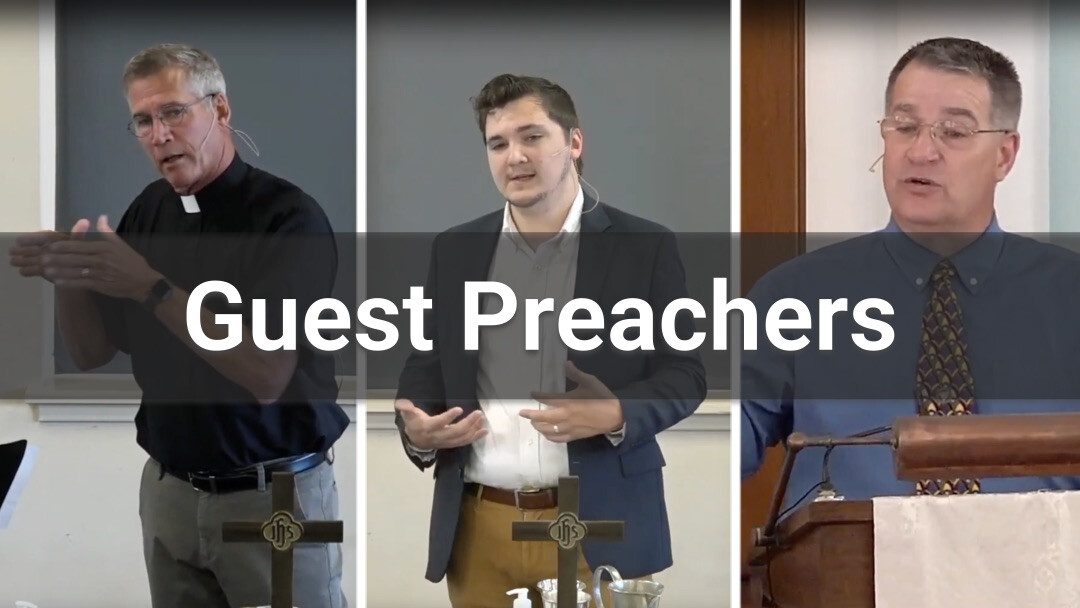
When Pastor Peter is away Second City Church is blessed to hear other men God has gifted to preach.

